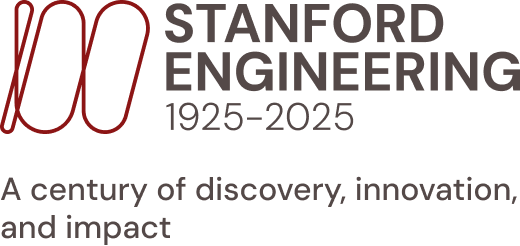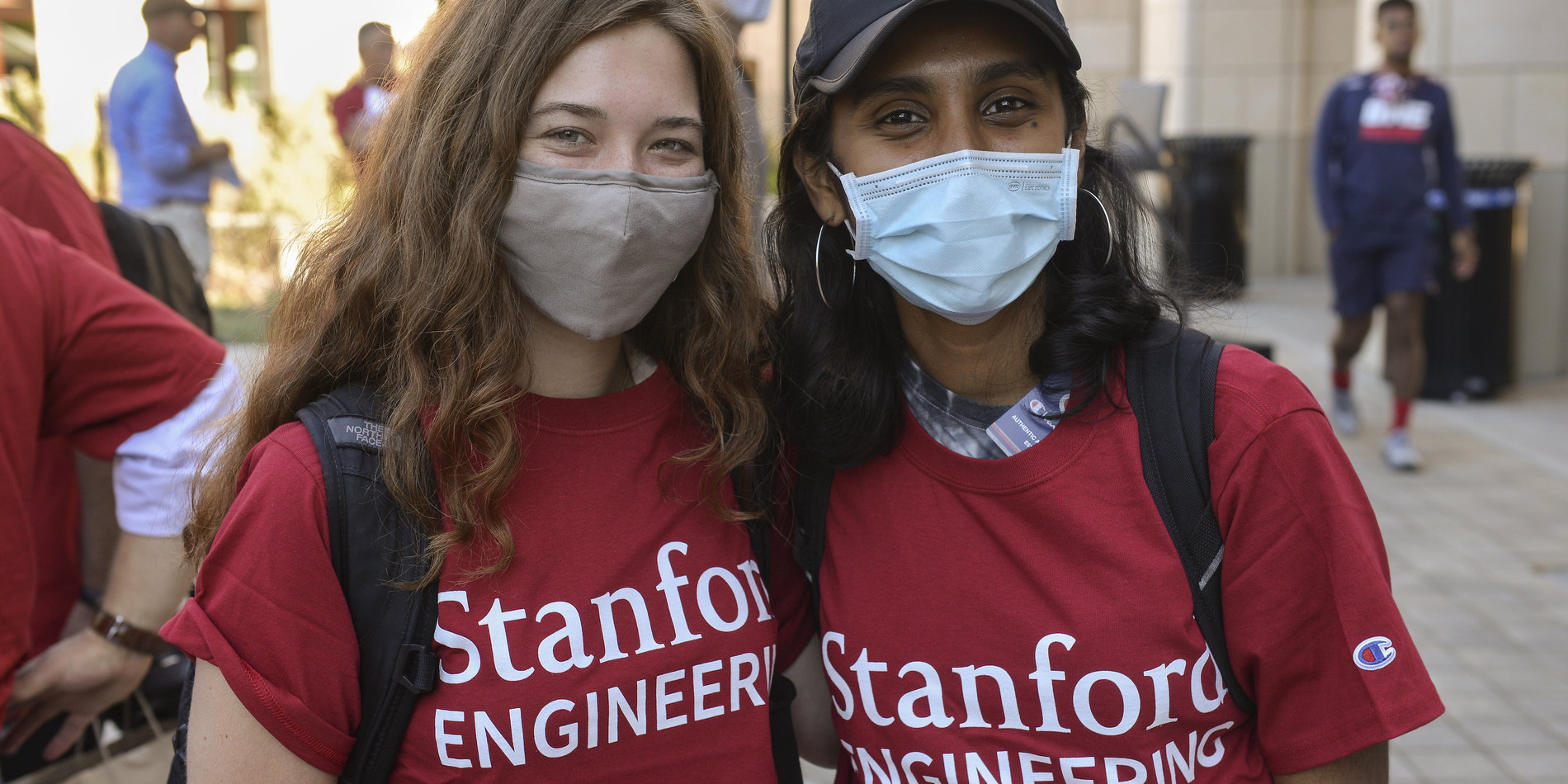“Graduate school is one of the most exciting times in life”
As classes began the week of September 20, Stanford Engineering welcomed its 1,040 new graduate students of 2021, and 687 who started in 2020, at an annual event in the Science and Engineering Quad.
In opening remarks to the several hundred attendees, Jennifer Widom, the Frederick Emmons Terman Dean of the School of Engineering, told students that “graduate school is one of the most exciting times in life” but it is not without challenges.
It is currently a moment of transition for everyone, Widom said, and there may be moments when things are difficult. Students, however, do not need to face these challenges alone. “There are resources and friends all around you,” she said.
Widom urged students, especially those who came to the area with partners and or families, to find the life-work balance that would help sustain them throughout their academic journey. She also advised the incoming graduate students to take classes and seminars outside their comfort zones and explore collaborations with students from across the school and university.
“You’re starting graduate school at an incredibly exciting time,” added Widom, who is also the Fletcher Jones Professor in Computer Science and Electrical Engineering. “Our faculty and students are working on amazing things, seeking solutions to big challenges.”
Electrical engineering professor Brad Osgood, acting senior associate dean for student affairs, said in his remarks that the graduate students of 2020 and 2021 come from 76 countries and 38 U.S. states, plus Washington, D.C. Roughly 38 percent are women, he said, and computer science students represent the single largest contingent. He noted that there is a more than 30-year age span between the youngest and oldest students and, in a bit of statistical whimsy, that August, September and October are the most popular birth months. “Looking back nine months, there might be some sort of correlation to becoming an engineer,” Osgood quipped.
In her remarks, Lourdes Andrade, senior director of equity and inclusion initiatives, said the school is “proud to welcome these two cohorts of students who are helping build an increasingly diverse graduate student body at Stanford.”
Francisco Romero, a fifth-year electrical engineering PhD student working on computer systems for machine learning and video analytics, told the students that, not long ago, he’d stood where they stood now – among what he’d come to realize was a community of some of the brightest and most talented people in the world.
He advised the students that feelings of imposter syndrome were normal, and encouraged them to ask the “dumb questions” because failure to do so inhibits learning, not just for the individual who holds back, but for their fellow students who remain silent for the same reason.
Romero encouraged students to meet – and lean on – their fellow students, the individuals standing with them in the Science and Engineering Quad. “The real stars of your graduate school journey will be your peers,” Romero said.




